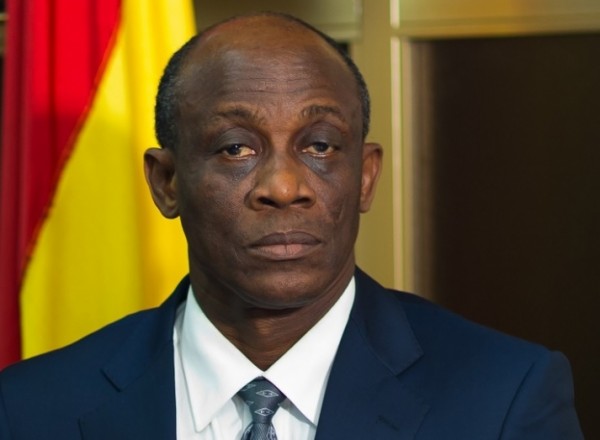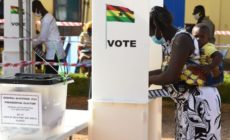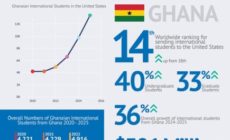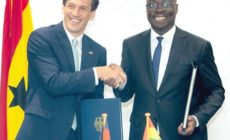The Finance Minister, Mr Seth Terkper, said at a news conference in Accra that the government had come far in implementing measures set under the programme which would result in Ghana achieving some successes at the end of the review.
The almost $1 billion support from the IMF in April this year is to narrow the budget deficit and support the cedi, which last year dropped more than 28 per cent against the dollar.
The programme is also expected to damp inflation, which reached 16.9 per cent in May.
Mr Terkper said the team, which was expected to finish the review process by June 30, would meet key state institutions including the Bank of Ghana (BoG), which is the implementing agency, the Ghana Statistical Service, Parliament and other government agencies.
A successful review of the key benchmarks set by the IMF and the home-grown policies implemented by the government will also unlock more than $300 million additional funds from development partners to support the budget.
While the IMF programme may help bolster investor confidence, chronic blackouts that last as long as 24 hours and plunging crude oil prices are hurting growth and an unexpected shortfall of the cocoa crop may curb revenue.
Ghana is the world’s second-biggest producer of cocoa.
Key benchmarks
The main pillars of the IMF reform programme are to ensure a sizeable and frontloaded fiscal adjustment to restore debt sustainability, focusing on containing expenditures through wage restraint and limited net hiring, as well as insituting measures to mobilise additional revenues.
The benchmark also entails structural reforms to strengthen public finances and fiscal discipline by improving budget transparency, cleaning up and controlling the payroll, right-sizing the civil service, and improving revenue collection.
The government is also expected to restore the effectiveness of the inflation targeting framework to help bring inflation back into single-digit territory; and preserving financial sector stability.
The ongoing review is critical to the country receiving the remaining $804 million under the IMF programme.
The government has agreed with the IMF to impose a 17 per cent petroleum tax, freeze the hiring of public sector workers and end costly energy subsidies, among other belt-tightening measures.
“In the medium term from 2017, 2018 we expect a strong increase in oil and gas production, which will contribute to strong medium-term prospects once the macroeconomic situation is stabilised,” Mr Toujas-Bernaté , Head of the IMF team, said.
On the fiscal side, the reform programme seeks to expand revenue collection and restrain the wage bill and other primary expenditures, while making space for priority spending and for clearing all domestic arrears.
The review will also assess the government’s measures to contain its rising public debts which has hit about GH¢88 billion as of March 2015, more than 65 per cent of its debt to GDP.
The fund’s review of the country’s debt management strategy and the declining currency has spiked some interest rates hikes.
Social spending safeguarded
To alleviate the potential adverse impact of the strong fiscal adjustment on the most vulnerable in society, the government is committed to using part of the resulting fiscal space to safeguard social and other priority spending under the programme, including expanding the targeted social safety nets.
Social programmes will be expanded to restore real incomes of the poor, which were dented by three years of high inflation, and to mitigate the adverse impact of the fiscal consolidation.
Africa’s success model
For years Ghana has been a model for West Africa, combining stable democracy with high GDP growth, but like other commodity exporters it now finds itself wrestling with imbalances.
Ghana benefited in 2004 from one of the first external debt write-offs under the highly indebted poor countries initiative.
But with oil production failing to come on stream and generate revenues in the quantities anticipated, the government has found itself saddled again with unsustainable levels of debt worth more than 60 per cent of GDP.
The IMF has downgraded its forecast for economic growth this year to 3.5 per cent, picking up to 4-5 per cent in 2016 and 5-6 per cent the year after.
Know this
For years Ghana has been a model for West Africa, combining stable democracy with high GDP growth, but like other commodity exporters it now finds itself wrestling with imbalances.











 (Selorm) |
(Selorm) |  (Nana Kwesi)
(Nana Kwesi)